








Specialty teams to piece each risk puzzle together for you. Our knowledgeable underwriters and brokers coordinate among specialty teams to meet the needs of multi-faceted risk opportunities. Our specialties extend beyond commercial lines into





Servant Leadership as an Independent Insurance Agent
Empowering Our Family, Clients, Employees and Community
As independent insurance agents, our role isn’t just about policies and coverage – it’s about people. Servant Leadership is more than a leadership style; it’s a mindset that guides us to put others first, whether it’s our family, clients, employees or the community we serve.
Family: The Foundation of Support
Everything starts at home. Family is where we learn values like honesty, integrity and compassion – the same qualities that shape us as independent agents. When we’re supported by those closest to us, we bring that same care and commitment to our work. A strong home foundation gives us the energy and purpose to show up every day ready to serve.

Clients: Building Trust and Loyalty
At the heart of what we do is trust. Our clients count on us to guide them through some of life’s biggest decisions. Servant Leadership means putting their needs first, listening to their concerns and providing solutions that truly fit their lives. When we focus on relationships over transactions, we build something deeper – loyalty, confidence and long-term partnerships that benefit everyone.
Employees: Fostering Growth and Collaboration
A thriving agency isn’t just about leadership; it’s about teamwork. When we support our employees’ growth – through mentorship, skill-building and career development – we create an environment where everyone feels valued and motivated. A workplace built on mutual respect and collaboration doesn’t just boost morale; it strengthens the entire agency, leading to better service for clients and a stronger industry overall.
Community:
As independent agents, we’re more than business owners – we’re community members. Giving back, supporting local initiatives and volunteering our time helps strengthen the places we call home. Whether it’s sponsoring a local event or lending a hand to a neighbor in need, the impact we make goes beyond insurance. Servant Leadership means showing up, staying involved and making a difference where it matters most.
Servant Leadership isn’t about titles or authority – it’s about lifting others up. When we lead with empathy, integrity and a genuine desire to help, we create a ripple effect that touches our families, our clients, our teams and our communities. By embracing this mindset, independent insurance agents can build a legacy of service, trust and excellence that lasts for generations.
I recently updated the Interim Banking & Insurance Committee of our legislature on the Kentucky Department of Insurance’s (Department or DOI) current work and the state of the marketplace, so let me share with you a summary of what I told our legislators.
Let’s start with the good news… our life insurance, P&C products (other than homeowners) are stable as is our health insurance market. Our workers’ comp insurance will be decreasing in 2025 for the 19th consecutive year, which is additional good news.
Kentucky will have four companies offering individual health insurance plans in 2025 and four companies offering group plans. While our health insurance rates are increasing, Kentucky’s increases are on the lower range compared to other states. With our small commercial market (less than 330,000 of Kentucky’s 4.4 million population), we are fortunate to have those companies active in our marketplace. Why do we have such a small commercial market? Kentucky has a large Medicaid population and also a very large population who are insured through ERISA plans (over which the Department has no jurisdiction).
Now for the bad news… homeowners’ rates are expensive. I am sure that you are hearing that from your customers. I understand the financial pressure that expense places on Kentuckians since employees at the DOI are experiencing the same pressure. Kentucky is in a “hard” insurance market for our homeowners’ insurance. The last time our market had this designation was from 2008-2012, during the financial recession our nation was experiencing.
For the last three years, the loss ratio for claims paid versus premiums received has been dismal. In 2023, our insurers paid $167 dollars in KY claims for every $100 received in premium. Kentucky is not alone with our hard market – it is occurring across the U.S. The catastrophic storms that we have been experiencing the past few years, as well as the inflationary and reinsurance costs, result in higher premiums.
No one can predict how long this market will last and we cannot control the weather. The Department and
the legislature are working together on two aspects of increasing homeowners’ rates that may help. The first is our initiative to strengthen resiliency of our homes. This is the Strengthen Kentucky Home Program which will start in January, 2026. This is a grant program run by the DOI that will help fortify homes and I will provide more details in a future column. The second initiative is the passage of legislation that will strengthen our efforts to combat insurance fraud which drives up premiums for everyone.
Kentucky has passed legislation in the last two regular sessions that has now been adopted as national models for other states to consider. There are additional measures proposed for the 2025 regular session which we expect to help even more. Again, I will provide more details on these initiatives in a later column.


The takeaway for you and your customers is that while we are experiencing a hard market, our market remains stable and competitive. Unlike other states, our insurance companies are remaining in Kentucky and our marketplace and this is good for all of us. We at the Department still fulfill our responsibilities of protecting our consumers and ensuring a financially solvent industry. Let’s hope our hard market will soon expire. As always, contact me or the Department whenever we can be of assistance. Thank you for all the work you do.


Doesn’t it seem like every week there’s a new article, hashtag, or viral video about workplace trends? It can be confusing to keep them all straight.
By: Mary Newgard, Capstone Search Group for Insurance Journal
Here are the trends that seem to generate the most interest and engagement from insurance professionals.
“Prepare The Others” P.T.O. Employees who are denied PTO requests have given this acronym a new meaning. Yahoo’s recent article, “Gimme a Break! You’ve earned some time off. So why won’t your boss let you take it?” talks about the friction between companies and employees fueled by increased requests for time off when one party is understaffed, and the other is overworked.
How this impacts insurance agencies: CSRs and account managers tell my team all the time that they want to leave their employer because the agency is perpetually understaffed. The pressure of working more than one desk is exhausting, not only leading to work/life imbalance, but also to more PTO requests being denied.
As this trend continues, we expect to see more surges in resignations by insurance professionals, especially during the times of the year when PTO requests peak.
#PayTransparency
Also known as #SalaryTransparency, there is a big TikTok account called @SalaryTransparentStreet dedicated to interviewing people on the street to ask for their job titles, salary, and location.
Even more recent is the #PaydayRoutine trend where people share their salaries and living expenses (rent, student loans, food, etc.).
How this impacts insurance agencies: What would you do if one of your employees shared their compensation on social media? If you’re a Baby Boomer or Gen X-er this might sound crazy, but to Millennials and Gen Z-ers, people between 18 and 43 years old, it’s a topic many don’t see a problem being public knowledge.
Quiet Quitting (for employees) and Quiet Firing (for managers) is essentially psychological withdrawal. Gallup’s May 2023 poll, “Is Quiet Quitting Real?” says, “Quiet quitters make up at least 50% of the
U.S. workforce – probably more.” Their additional research showed, “When employees receive meaningful feedback at least weekly, they are nearly half as likely to be watching for a new job,” (Quiet Firing, Gallup, November 2022).
How this impacts insurance agencies: It’s my opinion that for a lot of insurance agencies these issues are two sides of the same dysfunctional coin. If you notice absenteeism climb, it’s a sign your employee could be Quiet Quitting. When a manager lacks the interest or motivation to develop or mentor an employee, they could be Quiet Firing.
Long story short, insurance professionals are part of the 50%-plus category of U.S. employees quiet quitting. It’s closer to your doorstep than you think.
When employees are given a bigger title and increased responsibility without a raise, they’re being dry promoted.
How this impacts insurance agencies: This happens all the time to account executives. As the senior person at the top of the client service pyramid, it’s their plate that agencies naturally add management/team leadership duties to – often without a raise. The combination of a massive workload and flat earnings leads to burnout and resignation.
If you’ve given one of your employees a Dry Promotion, then my advice is to do the following immediately: Set up a meeting. Acknowledge and apologize. How you got to this place probably happened over time and was unintentional, but with your awareness today comes a need to remedy the situation.
Ask your employees if they like their workload. If they do, then a raise will remedy the situation. If they don’t, scale back and perhaps still consider an additional short-term bonus in consideration of past achievements. Remember, it’s always cheaper to give that money to a current employee as a retention strategy rather than to lose them to a much more costly new hire and recruiting process.

Clearpath Specialty, a Member of Harford Mutual Insurance Group provides monoline Workers' Compensation insurance through a network of independent agents in Georgia, Indiana, Kentucky, Tennessee, and West Virginia where we write business. We are committed to providing tailored solutions, ensuring businesses receive comprehensive coverage that meets their unique needs.



•

By: Carey Wallace and Team, AgencyFocus
Looking ahead to 2025, our AgencyFocus team put together some of our predictions for what agencies should be expecting in the upcoming year based on trends in data we have seen this year. Good news for almost everyone - we believe the market will begin to soften.
M&A activity will remain strong but the gap between those that command strong multiplies and those that command weaker ones will continue to widen. This will be based on agency performance, risk, and transferability.
As the market begins to soften, many agents who saw an all-time high revenue due to large rate
increases will experience a dip in their overall revenue and growth as a rate correction occurs. For agencies that shrunk in policy count while rates were at their high, the gap created by rates stabilizing will be more severe than those agencies that maintained high policy retention rates during the hard market.
For many agents, finding and keeping talent has been the number one factor keeping them up at night. The continuity issues that are created when an agency has lost key people or has no next-generation employees who are willing to stay with the agency through a sale cause the agency’s retention risk to increase. Agencies that face this issue should expect sale structures that include a retention clause if they expect to command a competitive multiple.
The use of Virtual Assistants (VA) will increase among agencies who want (or are forced) to have a lean team but keep high efficiency. VA usage isn’t a new topic among the industry, but there is a great divide among agencies who have learned to leverage their power and agencies who have played with the idea but are not leveraging all of the benefits within their agency. There is lots of room for utilization increase among agencies of all sizes.
If interest rates remain stable or drop, many sellers may want to exit before their revenue drops, staffing challenges increase, and the need for efficiency through technology and innovation continues. Many agency owners near or past retirement age will be contemplating an exit and those looking to grow by acquisition will have greater opportunities for acquisition.
In one of our latest Insurance Refocused episodes with Mike Strakov and Mike Wagar from Live Oak Bank, we asked them their predictions from a banking perspective. Their predictions touched on rates, PE buyers activity, agency multiple trends, market
softening and what that will look like for agencies.
There will be acquisition opportunities with reasonable rates on smaller agencies who can’t command PE multiples will be able to be purchased at reasonable rates. This will be based on their risk and overall expected cash flow. Given the expected correction in revenue due to the market softening, now is not the time to assume a rule of thumb multiple of revenue to all agencies as this practice can lead to many buyers overpaying for agencies.
Small independent insurance agencies will face the necessity of being highly adaptable to thrive in a digital and competitive marketplace. One effective strategy is to collaborate with insurtech firms or to implement digital platforms. It is crucial for these agencies to focus on technology integration that enhances human interactions, ensuring a tailored customer experience. Furthermore, by tapping into the expertise and resources of insurtechs, small agencies can protect their data and operations while offering clients more robust cybersecurity measures.







Affluent Program
▪ AIG
▪ Chubb
▪ Openly
Auto & Home Standard Markets
▪ Foremost
▪ Branch
▪ National General
▪ Openly
▪ Progressive
▪ Safeco
Flood – Selective
Home Business Insurance – RLI
Jewelry Insurance – Jewelers Mutual
Personal Umbrella – RLI
Umbrella Alternative Market
▪ Anderson & Murison
Recreational Marine – Chubb
Recreational Vehicle
▪ Progressive
▪ Safeco
Crump Life Insurance Services Bonds
Goldleaf
Propeller Commercial Auto Monoline
Forge
Progressive
The Hartford
Travelers
Community Banks Business Insurance Program – Travelers
Cyber Insurance – Coalition
Deductible Buy Back – AEGIS
Executive Risks – Coalition
Executive Risks & Cyber – Other Carriers ▪ Arlington Roe ▪ Berkley Management Protection
Chubb
CNA ▪ Cowbell Cyber
Philadelphia
Secura
The Hartford ▪ Travelers
Flood – Selective
Habitational Markets – MiddleOak ▪ Apartment Program ▪ Condominium Program
Real Estate Agents / Property Manager E&O – Travelers
Small, Middle, & Large Commercial
Arlington Roe
Berkley Aspire
Chubb
CNA
Employers
Hanover
Pie Insurance
Progressive
RT Specialty
Secura
The Hartford
Travelers Select

IdealTraits is your all-in-one hiring platform to make better hires, faster.

Get more candidates



LEARN MORE


Broadcast your jobs to all of the leading job boards like Indeed, ZipRecruiter, Google, LinkedIn, Talent com and more

AI Powered Career Page

Collaborate, organize and automate your candidates
Join forces with your team in real-time. Organize your candidates in a hiring pipeline Automate routine recruiting tasks

2-Way Texting
Predict job performance with assessments
Use personality, cognitive and video assessments to find candidates who are a perfect fit for your team’s culture and values.

Support
Screen candidates faster with video interviews
Complete your pre-screening interview process up to 75% faster, saving valuable time for both employers and candidates.

AI Powered


By: Scott Freiday, Insurbanc
“Nothing is certain except death and taxes,” said Benjamin Franklin. For independent insurance agency owners considering a sale of their business, they may find the certainty of income taxes to be elusive for 2026. The looming uncertainty relates to the reality that when agency owners sell their business, it’s not what they get that is important, rather it is what they get to keep.
Although agency owners often focus on the multiple of an agency’s revenues or cash flow that is used in calculating the sale price, the deal terms are equally significant. Most agency sales — but not all — involve the purchase of the agency’s assets rather than a stock purchase to limit the liability exposure of the buyer. The typical approach uses an installment payout and often involves an employment agreement with the agency owners that they will stay with the agency for a specified number of years —one, three or five years, for example — with an earnout provision relating to the final payment. The earnout provision is used to motivate the sellers to continue to increase the value of the agency during their employment.
Even if they own 100% of the agency, agency owners have a silent partner in the sale: the taxman. Although the tax implications of an agency sale are
often contemplated in structuring the deal, what is not known is the status of the Tax Cut and Jobs Act (TCJA). Enacted in 2017, it lowered corporate tax rates to 21% and, for pass-through entities like S Corps, LLCs, LLPs and sole proprietors, it introduced a Qualified Business Income (QBI) deduction of 20%. Approximately two-thirds of all independent agencies are pass-through entities.
Of great significance is that the TCJA lowered the capital gains rates in most cases. However, the TCJA is scheduled to sunset at the end of 2025, which means that tax rates will revert to pre-2017 levels, and the capital gains rate will be linked to the taxpayer’s ordinary income tax bracket as it was before the TCJA was enacted. Regardless of which party wins the November election, in an era of massive federal deficits there are political uncertainties about the ability to renew the TCJA. If not renewed, the after-tax earnings of agency owners will decrease, and the net sale proceeds will be lower on an after-tax basis. Agency owners who are not yet ready for a total sale of the agency may be more motivated to sell a portion of their agency during 2024 and 2025.
A partial sale of the agency to a key staff member (or members) accomplishes two objectives:
• It helps perpetuate the agency by retaining key staff and establishing the future leadership regime. A stock purchase loan can be arranged to provide funding for the partial sale.
• It assists the agency owners in diversifying their personal balance sheet and provides for tax efficiency of their return on assets.
Keith Mangini, VP Commercial Lending,for InsurBanc, cites an example. “We recently helped a second-generation agency owner address his need to retain a key producer by using the vested value of his book of business in conjunction with capital that we provided in the form of a stockholder loan, which served as the basis for purchasing a minority interest in the entire agency. This solved the needs of both the agency owner and key staffer,” he explains. “Further, it reassured other agency staff that there is a perpetuation plan in place, creating a certainty about the agency’s future.”
The psychological advantage of using a stockholder loan to facilitate a partial sale of the agency is that agency owners often procrastinate when it comes to perpetuating their agency. Industry consultants recommend that planning for perpetuation should
ideally start 10 years, but certainly no later than five years before the planned agency sale or their exit from the agency. Since the stockholder loan necessitates an agency valuation, it establishes a process for future agency transactions and helps overcome the tendency to procrastinate.
With a stockholder loan, customarily there is a buy-back feature that provides the agency with the first right of purchase of the minority ownership. Regarding the potential reversion at the end of 2025 to higher tax rates, the agency owners can take advantage of current capital gains rates and diversify their personal balance sheet. Or they can use the proceeds to invest in the agency’s capabilities, acquire a smaller agency, or recruit other insurance professionals with specific expertise to serve a target industry.
Now, while the tax environment is known, is an opportune time for agency owners to reassess their personal timeline. If your agency has been procrastinating on its perpetuation plan, keep in mind that as Caesar was warned that “The Ides of March are approaching,” so too is the potential sunset of the TCJA at the end of 2025.
Sources
Cuts and Jobs Act: A Comparison for businesses, https://www.irs. gov/newsroom/tax-cuts-and-jobs-act-a-comparison-for-businesses









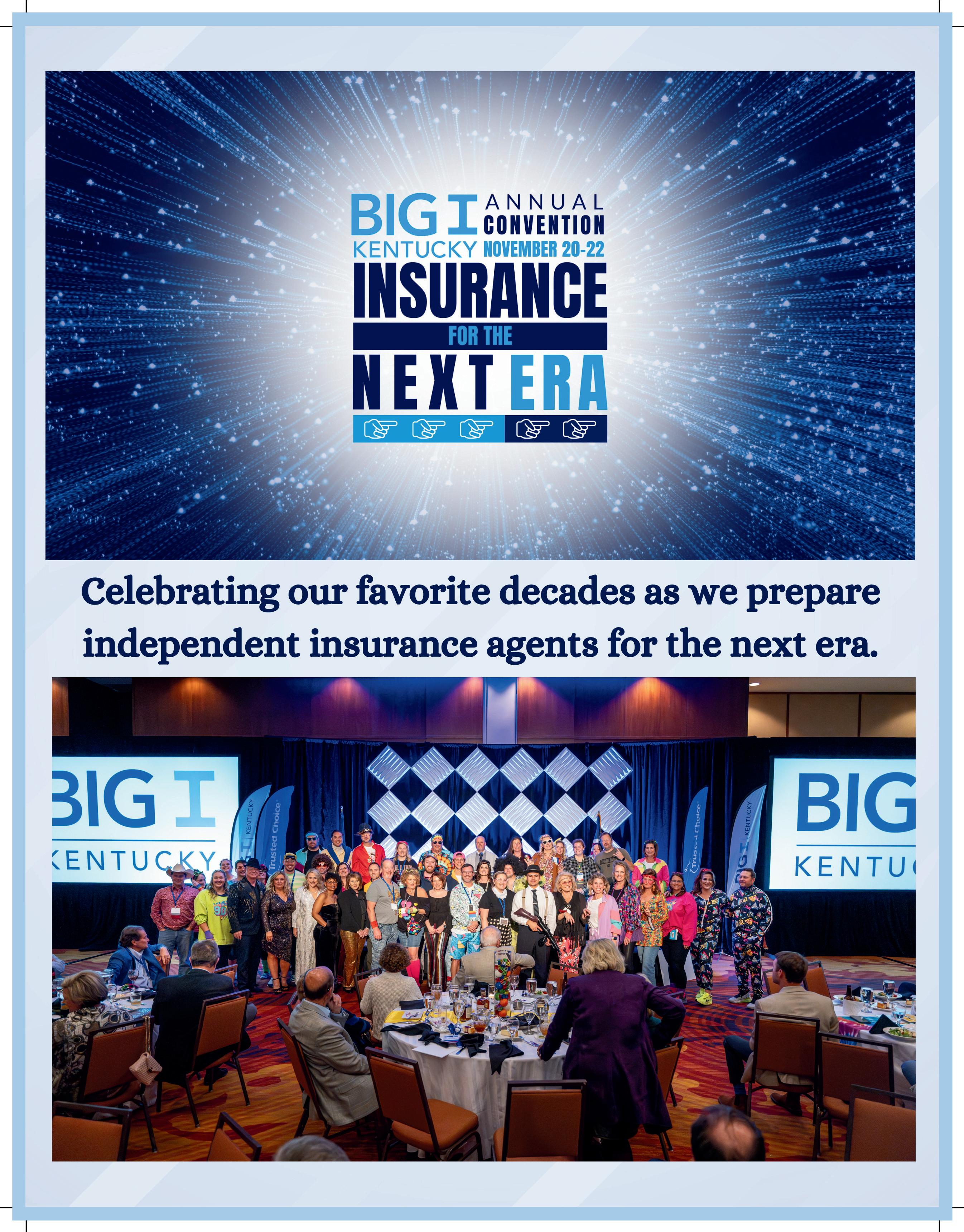
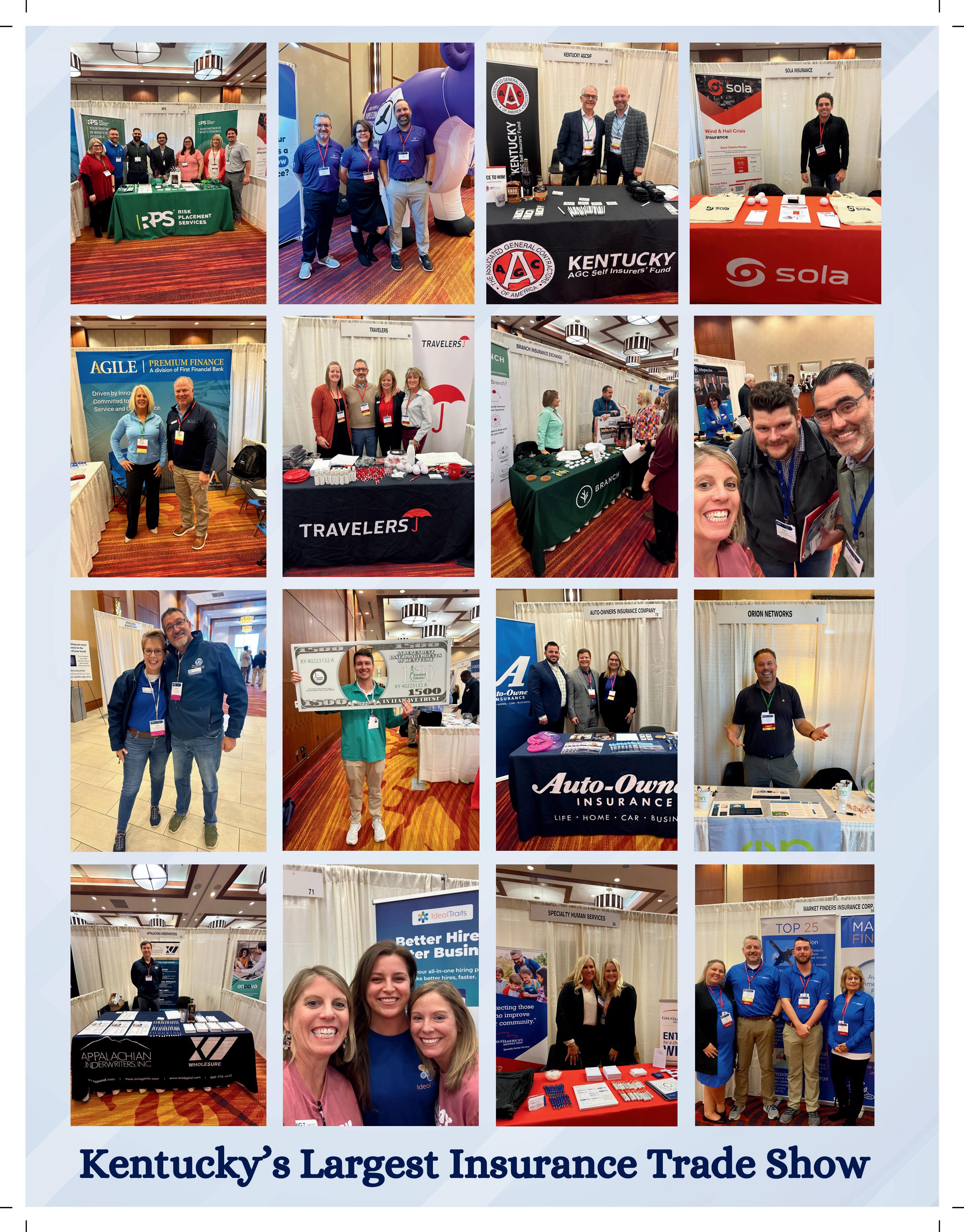









By: Crystal Ricevuto, Levitate Marketing
Harnessing the power of artificial intelligence (AI) has become a game-changer for content creation, especially in email marketing and social media campaigns. However, to unlock the full potential of AI-generated content, crafting strong prompts is essential. So, how can you ensure your prompts lead to impactful content? Here are seven tips to help you master the art of writing strong prompts for AIgenerated email and social media content.
1. Be Clear and Specific
Clarity is key when crafting prompts for AI. Clearly communicate the purpose and desired outcome of the content to guide the AI effectively. Whether it’s promoting a product, sharing information, or driving engagement, ensure your prompts leave no room for ambiguity.
2. Know Your Audience
Understanding your audience is paramount. Tailor your prompts to their preferences, interests, and pain points to ensure the generated content is relevant and engaging. The better you know your audience, the more effective your prompts will be in driving results.
3. Use Actionable Language
Inject your prompts with action-oriented language to prompt the AI to create content that encourages specific actions from your audience. Whether it’s clicking a link, subscribing, or sharing the content, make it clear what you want your audience to do.
4. Provide Context
Offer the AI enough context to understand the tone, style, and voice you want the content to convey. Share details about your brand personality, target audience, and relevant industry or topic-specific information to
ensure the generated content aligns with your brand identity.
5. Include Keywords and Hashtags
Optimize the generated content for search engines and social media platforms by including relevant keywords and hashtags in your prompts. This helps increase visibility and reach among your target audience, boosting the effectiveness of your campaigns.
6. Encourage Engagement
Prompt the AI to create content that fosters audience engagement. Ask questions, invite opinions, or encourage users to share experiences to spark conversations and deepen connections with your audience.
7. Keep it Concise
Keep your prompts concise and to the point. Avoid unnecessary details or ambiguity that could confuse the AI and result in off-topic or irrelevant content. Clear and succinct prompts lead to better outcomes.
By following these seven tips, you can write strong prompts that effectively guide AI-generated content creation for your email and social media marketing efforts. Mastering the art of crafting prompts is key to unlocking the full potential of AI and driving meaningful engagement with your audience.
We know AI can be overwhelming, so when you partner with Levitate, you have options. If you need help using our built-in AI Assistant, your dedicated success manager will guide you. If you’d rather have content created for you, we have plenty of that, too. Reach out (www.levitate.ai/contact) for a tailored demo, and we’ll show you how!





By: Dustin Miller, Lobbyist
As we kick off 2025, I have been asked to write the obligatory “preview” column highlighting what you can expect from a government affairs perspective in the New Year. My first line may have seen a little “whiny,” and it was…until I looked at all we have coming down the pike in 2025 and what a great job the Big I staff did giving you a glimpse of this at the 2024 Convention. You received some education on Fortified Homes, an update on what is happening in DC and on the home front at Kentucky Department of Insurance.
President Trump was inaugurated on January 20 and the GOP controls both chambers of Congress, providing a unique “Trifecta” opportunity for the GOP. This will likely affect many areas of public policy, but at Convention, Congressman Comer gave us a preview of an item of specific interest to Big I and you as a small business owner… Tax Cuts.
The Big “I” has supported making permanent the 20% small business deduction (Section 199A of the U.S. tax code) passed as part of the 2017 Tax Cuts & Jobs Act. The deduction, which is scheduled to expire at the end of 2025, is heavily relied upon by many Big “I” members to keep their agencies operating, meet payroll and better serve consumers and their communities.
This is going to be discussed in the upcoming Congress and hopefully will be made permanent by the end of the year.
One of the major pieces of legislation that passed in Kentucky’s 2024 Session will begin to be implemented in 2025…Fortified Roof grants and discounts. Commissioner Clark gave you a preview of this at the Big I Convention. She discussed that the website for the Stronger Kentucky Homes program has been built, the grant application has been created, the DOI’s intention to provide geographic balance for these grants (so they don’t all go to the golden triangle) and they are ready to help contractors get certified.
None of these items have been made public yet because the Commissioner has to go through the formal administrative regulation process to “put the meat on the bones” of the statute. As of this writing, the final administrative regulations governing the grant program have not been filed, but the Commissioner expected them to be out in the first quarter of 2025 and promised that Big I would have input into this new program.
As you read this, the 2025 Regular Session of the
General Assembly will be underway, having completed the organizational part of the session in early-January where they seated 21 new legislators (15 House and 6 Senate members) following the 2024 election cycle; elected new leadership and established committee chairs and rosters. As a Big I member, you can learn more about these changes and how they impact you in our weekly Legislative Update.
One big takeaway you can learn from this is that unlike in DC, things in Frankfort remain much the same. The Executive Branch is controlled by Democrats and the GOP controls both chambers of the legislature with large supermajorities. I did want to highlight a couple of bills that we will be engaged with this session:
Car Dealer
Insurance - Somerset Agent
Adam Sheridan brought us an issue that we are attempting to solve this session… lack of writers in the
used car dealer liability market. The idea is to try and allow surplus lines carriers to legally provide used car dealer liability coverage. This should provide agents with more market options to serve their customers.
Real-Time Insurance Verification - We expect legislation this session to allow insurers and the KY Transportation Cabinet to work together to move from the current 45-day verification of insurance in KAVIS to real time reporting. This should reduce agent calls and paperwork from customers who are trying to renew online or at the clerk’s office and KAVIS incorrectly shows them as not having insurance.
As I close out this “preview” article, I am obliged to say that it is a pleasure to represent Big I and I am excited about the advocacy opportunities to score some wins for agents in 2025.





By: Mallory Cornell, MBA, IIA Wisconsin
Reviewing insurance client files is a resource commitment that could save the agency from an E&O claim or losing a good customer. Ensuring proper client file management shows a commitment to quality service, compliance, and data integrity.
Client Changes: Clients’ circumstances change over time—jobs, homes, family size, or financial situations. An agency must offer regular reviews to ensure accurate information and policies reflect current needs. The agency must also drive the importance of documenting these changes. Errors in client files (like incorrect exposure details) can lead to claims, denials, or disputes.
What to look for in the file?
• Is there written client acknowledgment of the change request being made?
• Is there carrier verification that the change request was received and processed?
• Was there a follow-up with the client to confirm the change was made?
Legal and Regulatory Standards: Insurance professionals, particularly those in the Benefits division, must complete reviews to help ensure that policies comply with laws and industry standards. Proper documentation reduces agents' professional liability risk, especially during audits or disputes.
What to look for in the file?
• Is there a compensation disclosure form in the file annually?
• Has the client signed an e-delivery consent form?
• Have MVRs been distributed beyond just the agency?
Assessing Client Coverage Needs: Reviewing files provides the agency with an opportunity to identify gaps in coverage, providing an opportunity to make sure clients are not underinsured.
What to look for in the file?
• Has an exposure review been offered to the client?
• Do the client's insurance limits meet or exceed agency minimum standards?
• Is there documentation of additional coverage or limits having been offered?
Organized Records: Keeping files up to date ensures easy access to client details during reviews, audits, or claims processing.
What to look for in the file?
• Is there a client intake or quote form that provides a good “snapshot” of the client needs?
• Is there a statement of values available?
• Is there up to do date employee counts, census data and proposal presentations?
Regularly reviewing client files ensures that both clients and the agency are protected. It improves accuracy, minimizes risks, enhances customer relationships, and ensures legal compliance.
By staying proactive, insurance professionals build trust and safeguard the long-term success of their business.
You can find additional information regarding operational audits and client file reviews by visiting Virtual Agency Solutions at www. virtualagencysolutions.com.


The
The
The



By: Annette Ardler, Swiss Re Corporate Solutions
Part of my responsibility as the risk management expert with Swiss Re Corporate Solutions is to assist insureds with any risk management related questions they have. I’ve received several queries this year and thought we would look inside the mailbag at some of the most interesting questions.
“I have customers who text me for coverage changes on my cell phone. I prefer not to communicate with my customers this way and usually just reply asking them to forward their request to my email address. How can I get my customers to comply with this request?”
Business communications have changed over the years. Remember the days before email
when everything was sent via the U.S. Postal Service? Texting is becoming more of a norm with customers, especially younger generations.
If you really don’t want your customers to contact you via your cell phone, don’t give them your phone number. But once they have it, here are a few things to consider. Best practices would be to have the customer sign an electronic communication disclosure form (sample on the Agents Council for Technology website) indicating the agency has permission to text them. This oftentimes doesn’t happen, and I’ve been told that if the customer initiates conversation via text, you are OK to text them back.
If your customer is requesting coverage changes via text, you should follow up with a more traditional form of communication, like email, to verify. Treat it like a telephone conversation since it is hard to document and verify with a date/time stamp.
Lastly, you can add an automatic reply message to go out when you receive text messages that includes a disclaimer, like the one on your email signature, that reads “Insurance coverage cannot be bound or changed via text messaging. You must speak directly to a licensed agent.” Not the most ideal as you really don’t want that reply to go to your personal contacts when they text you, but it is something you can consider using.
“A lot of my customers are senior citizens. Our agency wants to develop an
internal
‘power of
attorney’
or permission form some of our clients can use who want a family member (i.e., son, daughter, etc.) to be able to speak to us about the possibility
of making coverage changes to their policies. Would Swiss Re have a sample we can follow?”
This is a situation that could apply to any of your customers, not just the “senior” variety. A power of attorney is a written instrument by which a person appoints another as their agent or “attorney in fact” and confers upon them the authority to perform certain acts. It can be “full” (a general power of attorney) or “limited” (a special power of attorney). Usually, a power of attorney is a legal document and is part of someone’s estate plan. As such, it really should be created with an attorney, because the customer needs to take into consideration local/ state laws and regulations regarding powers of attorney and other implications. This document goes beyond just being able to “talk” to a noninsured about a customer’s policies.
If the agency is seeking an authorization document for the customer to grant consent for the agency to discuss their insurance policies with a non-insured (and grant authority to enact coverage changes), the agency should speak to their local counsel for assistance in drafting the document. The agency will also want to make sure their customer doesn’t already have a similar document in place that maybe just needs to be shared with the agency for future reference.
“We have a customer we would prefer not to work with any longer. Is it possible to ‘fire’ them from the agency?”
The answer is “yes.” If you find the relationship you have with a customer is no longer serving value to your agency, you can advise them you are not able to continue to handle their insurance policies and recommend they find another agency to handle their insurance matters. There is a sample letter for your use on the E&O Guardian website, under the Find Agency Tools section. Additionally, there are some helpful articles on the Virtual University section of the Big “I” website. Search for “How to Fire a Customer,” “Purposely Getting Rid of a Customer” or “Getting Rid of Abusive Customers.” Be sure to save a copy of any communications in your agency management system.
If you have a question or would like some information on how to reduce potential E&O issues in your agency, please feel free to send an email to me at annette_ardler@swissre. com.
Annette “Nettie” Ardler, CPIW, DAE, AIAM, is a Senior Underwriter & Risk Management Expert of Swiss Re Corporate Solutions, underwriting insurance agents errors and omissions coverage. She has been a licensed agent for over 30 years with a specialty in professional liability insurance. Nettie has taught classes in risk management, ethics, and laws and regulations.
This article is intended to be used for general informational purposes only and is not to be relied upon or used for any particular purpose. Swiss Re shall not be held responsible in any way for, and specifically disclaims any liability arising out of or in any way connected to, reliance on or use of any of the information contained or referenced in this article.
The information contained or referenced in this article is not intended to constitute and should not be considered legal, accounting or professional advice, nor shall it serve as a substitute for the recipient obtaining such advice. The views expressed in this article do not necessarily represent the views of the Swiss Re Group (“Swiss Re”) and/or its subsidiaries and/or management and/or shareholders.
Copyright 2024 Swiss Re
Scan the QR Code below to register for any upcoming event.

Louisville
February 6 CO
Virtual
February 18 CSR
Louisville
March 13
Established Louisville agency interested in acquiring insurance agencies in Jefferson and surrounding counties. If you are interested in selling, merging, or need assistance with perpetuation, we would like to talk with you in confidence.
Call Kevin Lavin, CIC or Philip Anderton, CIC, CRM at Sterling Thompson Company at 502-585-3277
Independent with top best markets looking to expand presence in Jefferson, Oldham or Shelby counties. Wanting Personal lines Producer or book of business to move or purchase. All arrangements possible, in strict confidence.
Please send inquiries to:
Turner Insurance Agency, 2460 Shelbyville Road, Shelbyville, KY 40065 or call Kurt Turner, CPCU at 502-633-6060.
11
Owensboro May 12-14
Owenton
14
We would like to thank our advertisers for their support. This publication would not be possible without you!
For classified ads or to advertise in the Kentucky IA, visit bigiky.org/magazine or call 502-245-5432.


(as of 12/31/24)







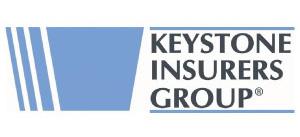
Agile Premium Finance Amerisafe
Anthem Blue Cross and Blue Shield
Auto-Owners Insurance Company
Berkshire Hathaway GUARD Insurance Branch
Captial Special Risks
Commercial Sector Insurance Brokers Countryway
Cowbell Cyber
EMC Insurance Companies


Encova Insurance FCCI Insurance Group Frankenmuth Insurance
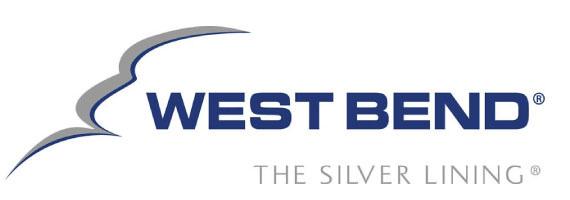
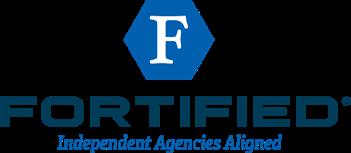

National
Iroquois Group
J.M. Wilson
Johnson & Johnson
Kentucky Growers Insurance Company
Market Finders Insurance Corporation
Big I Kentucky gratefully acknowledges these fine companies, our 2024 Industry Partners. Without their assistance, fees for the events and programs throughout the year would be significantly higher and/or the quality of the program would be restricted.
TO BECOME A SPONSOR OR FOR MORE INFORMATION ABOUT OUR INDUSTRY PARTNER PROGRAM, PLEASE CONTACT ERIN FOSSON, SALES & MARKETING DIRECTOR, AT 502-245-5432 OR EFOSSON@BIGIKY.ORG
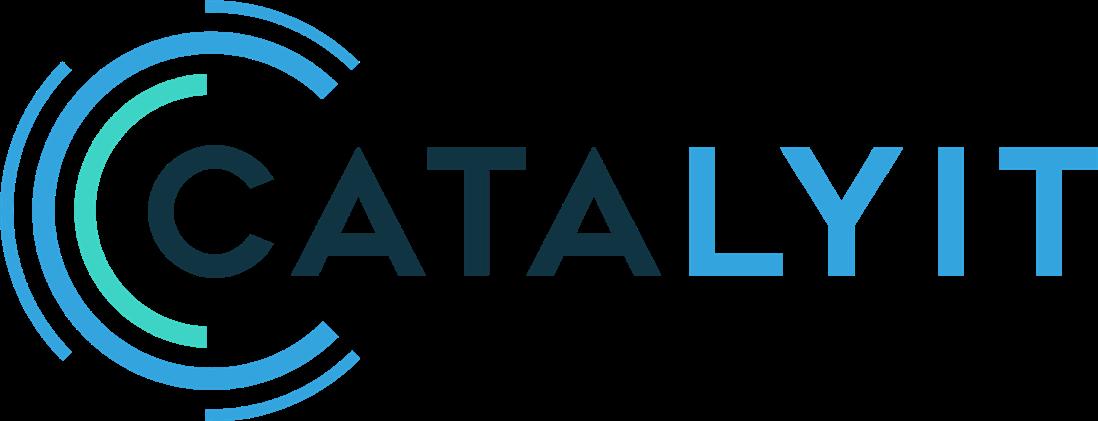

Catalyit is the ultimate technology ally for independent insurance agents. We’re here to guide you through the tech landscape to help your agency thrive in the digital age.
Smart Technology Choices
Avoid costly mistakes with our trusted guidance.
Enhanced Agency Performance
Leverage our insights to get the most out of your tech investments.
Keep ahead with the latest in tech trends and updates.
Save Time
Efficient solutions that let you focus on what matters—your clients.
Achieve More
Stress less about tech and focus on growing your business.
Start transforming your agency today!
Agency Tech Assessment & TechSelectors™
Understand your tech needs and how to fulfill them.
Generative AI Guide
Get the latest AI news and recommended tools.

Guides & Reviews
Make informed decisions with our comprehensive reviews.
Consulting
Our advisors can help identify your agency’s tech challenges & implement the solutions.

